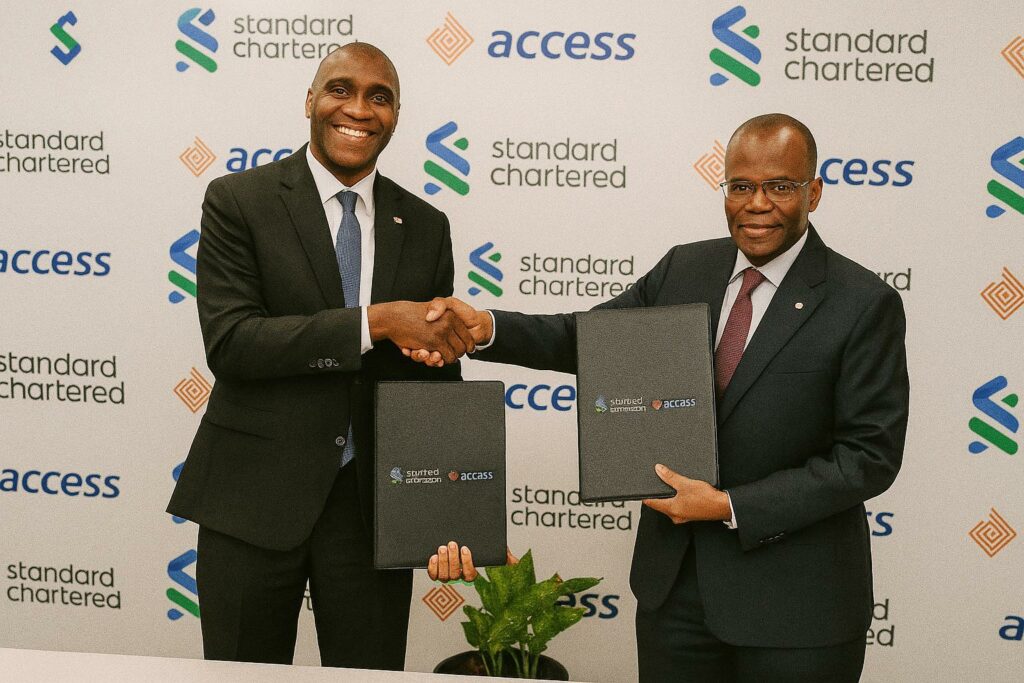Access Bank doubles down on East Africa expansion
The Lagos-based Access Bank PLC on 20 June 2025 received final regulatory clearance to absorb the retail and wealth-management portfolios of Standard Chartered Bank Tanzania. According to group chief executive Roosevelt Ogbonna, the transaction, whose value remains undisclosed, adds roughly 150,000 clients and an estimated USD 1 billion in assets under management to the Nigerian lender’s East African balance sheet, reinforcing a strategy articulated immediately after its 2019 merger with Diamond Bank. Ogbonna declared that “Dar es Salaam offers a springboard to the Great Lakes corridor”, framing the deal as a precursor to a single presence in every African sub-region by 2027. His ambition resonates with a broader surge of Nigerian capital south-eastwards, following Access Bank’s earlier purchases of Standard Chartered’s franchises in Angola, Cameroon, the Gambia and Sierra Leone during 2023-24.
Standard Chartered executes long-awaited portfolio slimming
For the City of London, the sale marks another chapter in a multi-year retreat from smaller African and Middle Eastern markets first flagged by chief executive Bill Winters in April 2022. Faced with rising compliance costs, Basel III capital buffers and a persistent discount on its share price, the 170-year-old lender prioritised what it calls “scale markets and affluent hubs” in Asia and the Gulf. Standard Chartered’s spokespeople in Nairobi underline that Tanzania, generating under 1 percent of group revenue, no longer matched that profile. The bank is retaining only its corporate and institutional banking desk in Dar es Salaam, mirroring similar belt-tightening in Zimbabwe, Jordan and Lebanon earlier this decade.
Regulatory green light signals Dar es Salaam’s financial aspirations
Tanzania’s central bank granted no-objection on 3 May 2025 after a due-diligence period that government insiders describe as “unusually swift” compared with the 14 months consumed by a smaller Kenyan merger in 2020. Governor Emmanuel Tutuba publicly welcomed the arrival of a tier-one Nigerian player, arguing that “regional diversification can inoculate the sector against domestic shocks”. Yet the regulator also imposed localisation clauses on technology and data-storage architecture, reflecting concern over cross-border cyber-risk and the extraterritorial reach of Nigeria’s Data Protection Act. Legal analysts in both Lagos and Dar es Salaam suggest that the compromise offers a soft precedent for forthcoming Pan-African banking codes under the African Continental Free Trade Area (AfCFTA).
Continental banking rivalry intensifies under AfCFTA horizon
Access Bank’s manoeuvre deepens an already crowded contest. Kenya’s KCB Group and Equity Bank have been in exploratory talks with Rwanda’s Cogebanque, while South Africa’s Standard Bank is strengthening correspondent lines in Mozambique. In that climate, Access Bank bets that economies of scale—and a unified digital platform rolled out from its dual hubs in Lagos and Nairobi—can underprice competitors. Fitch Ratings warns, however, that high US-dollar funding costs and Tanzanian shilling volatility could erode the promised cost-to-income gains. Conversely, regional policymakers see upside: a 2024 African Development Bank study estimated that cross-border banking could lift intra-African trade finance by USD 40 billion annually by 2030 if regulatory equivalence is achieved.
Consumers and diplomats weigh dividends of a Nigerian-Tanzanian alignment
For Tanzanian retail clients, immediate change is expected to be subtle: cheque books will retain the familiar maroon until December, and branch staff have been offered 18-month employment guarantees. Medium-term, Access intends to integrate its digital-only ‘AccessMore’ platform, promising instant naira-shilling transfers that could recalibrate remittance flows from the vast Tanzanian diaspora in South Africa and the Gulf. Civil-society observers caution that Nigeria’s large-bank template may thin credit to smallholder agriculture, a sector Standard Chartered historically served via donor-backed schemes. Meanwhile, Abuja’s diplomats in East Africa are quietly celebrating: the deal expands Nigeria’s corporate footprint in a country that has traditionally tilted toward South-South cooperation with China and India. A senior Tanzanian foreign-affairs official, requesting anonymity, mused that “banking is the new oil of soft power”.
What the deal portends for the continent’s financial architecture
The Access-Standard Chartered handover illustrates two converging phenomena: the centrifugation of global banks from low-margin, high-compliance markets and the centripetal pull of African champions seeking continental heft. As AfCFTA negotiations advance on services, finance ministries from Accra to Addis Ababa will watch how Dar es Salaam arbitrates between prudential safeguards and market openness. Should Access Bank replicate in Tanzania the 27 percent return on equity it posted in Ghana last year, the transaction may become a template for other emerging-market lenders eager to fill the void left by western incumbents. If, conversely, integration hiccups prevail, London’s retreat might still prove vindicated. Either scenario makes this compact, seemingly technical acquisition an instructive case study in the geopolitics of finance.

